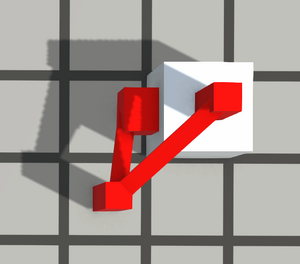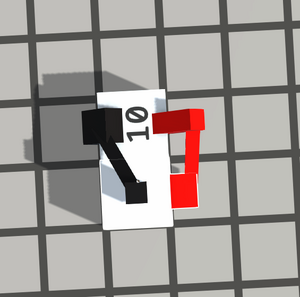Clock
A Clock is a circuit that changes its output state periodically over time.
The simplest clock is made of a single Inverter connected to itself, either directly or with a delay. A single inverter clock alternates ON and OFF every tick. With delayer components it will have a longer period.
Terminology
- Period is the duration of the entire cycle of the clock, measured in ticks. It includes the duration of the ON output and the OFF output.
- Duration of a signal is the number of ticks the signal remains unchanged.
With delay components the duration of a signal is calculated as follows:
The full period will be
 |
 |
In advanced circuits or during construction you may require clocks with different periods, signal shapes, and functionality. You should never underestimate the importance of good clocks.
Construction
This article will be mostly agnostic towards the period of the clock. This means you may add different features that will work irrespective of the period.
To make a good clock you need to know what functionality you require. Here is a list of possible features you may want:
- switching on/off
- manually adjustable period
- digitally adjustable period
- specific signal shape
This article will show how to add features to a clock, starting from the simplest to the most advanced.

